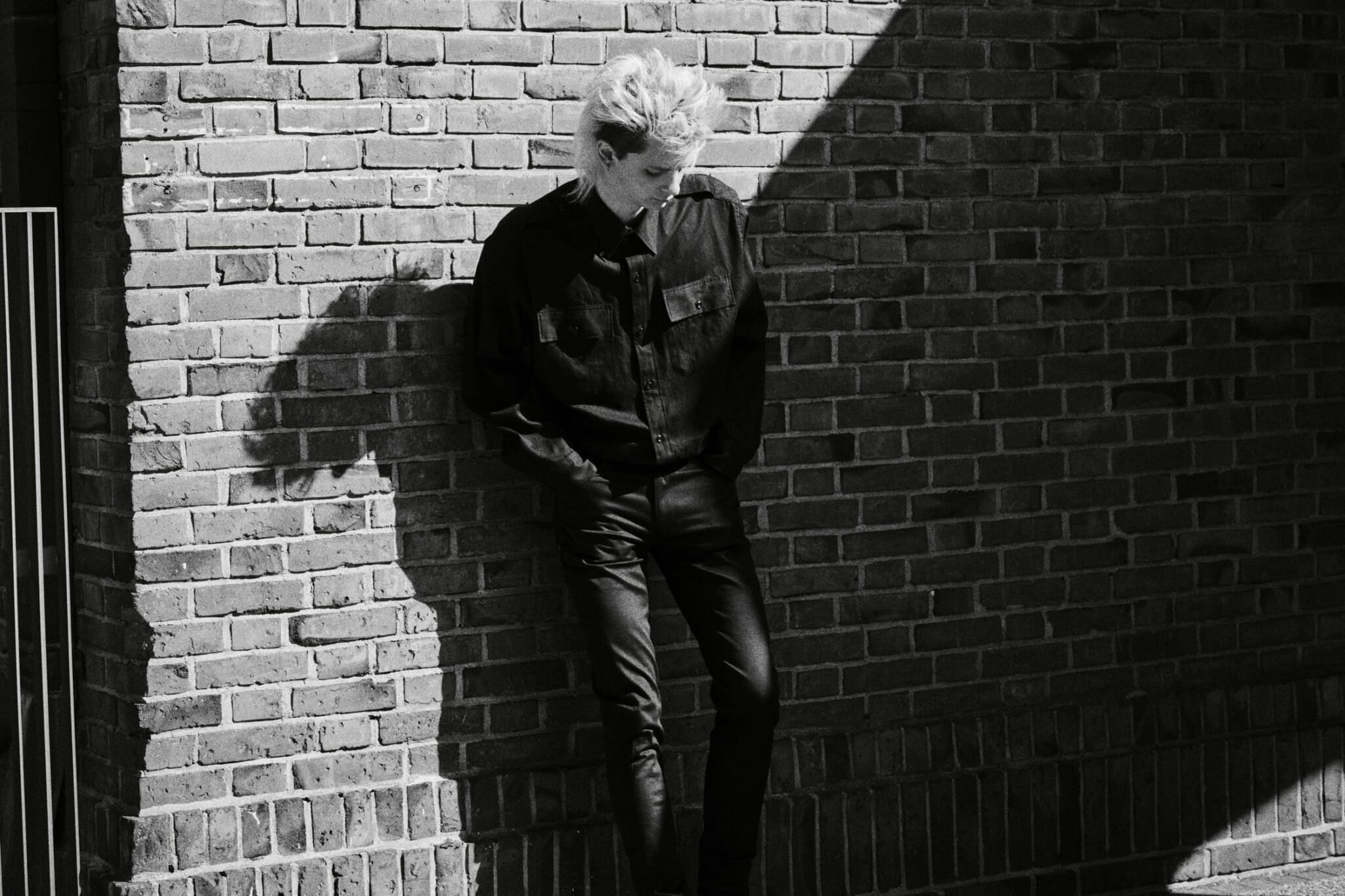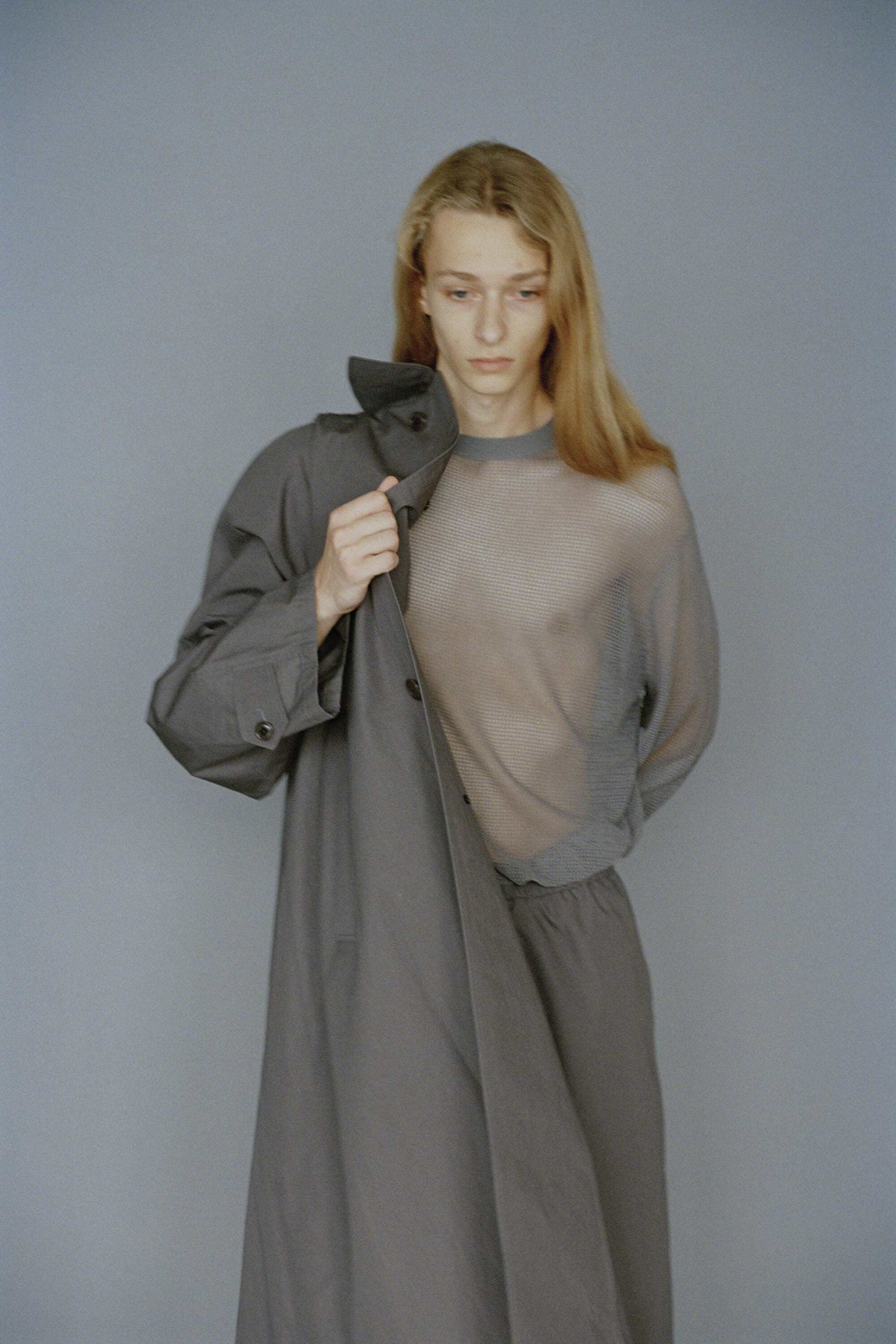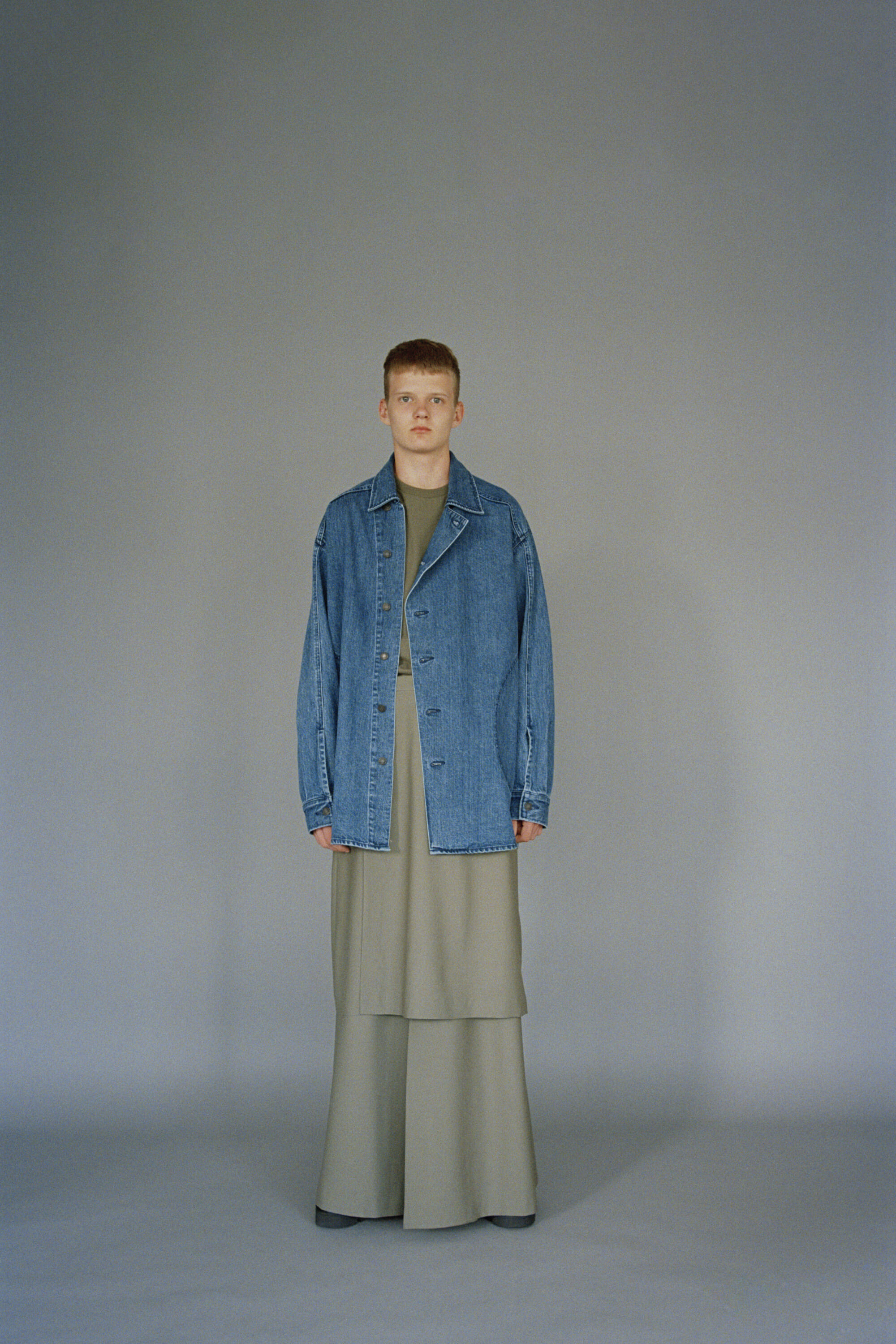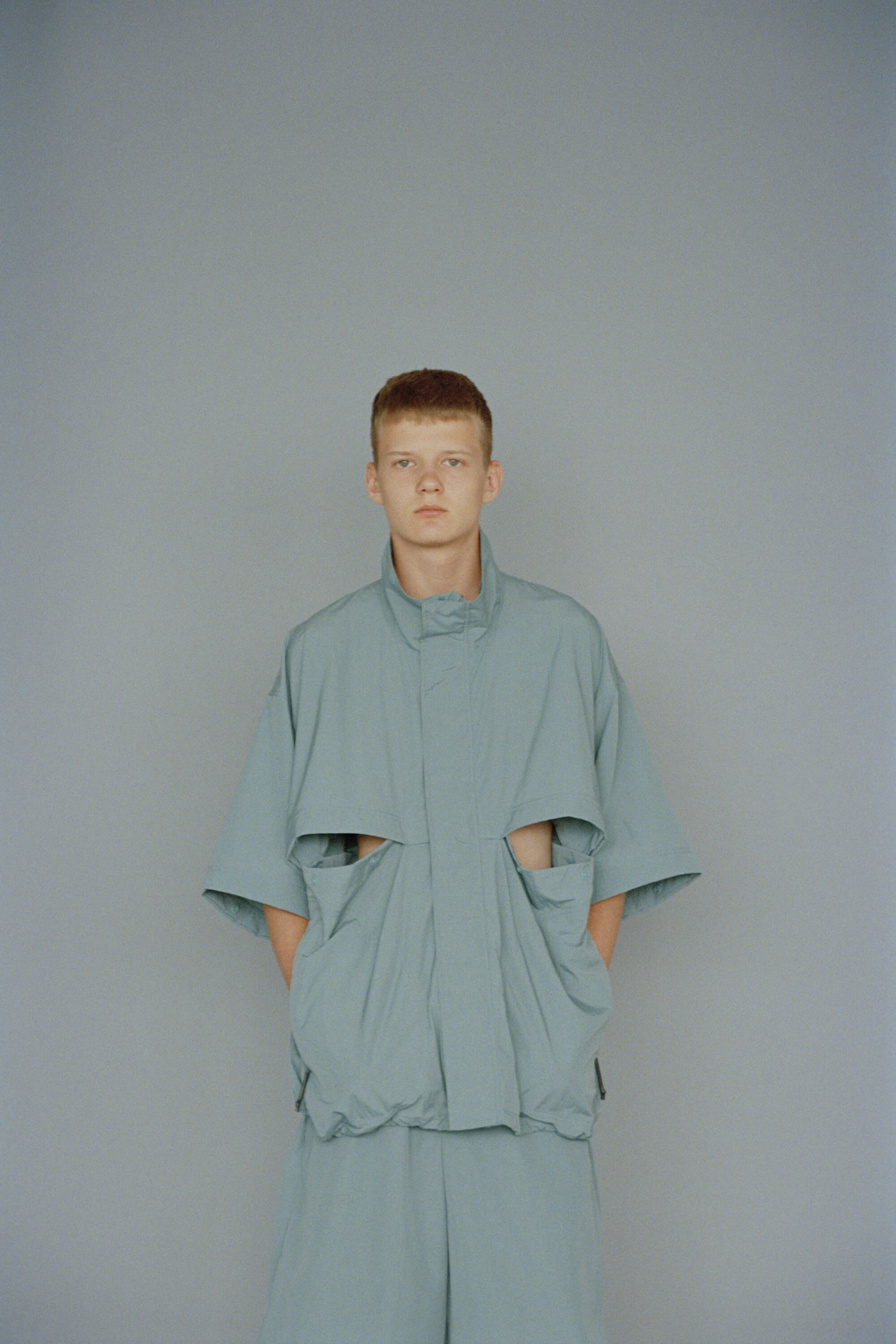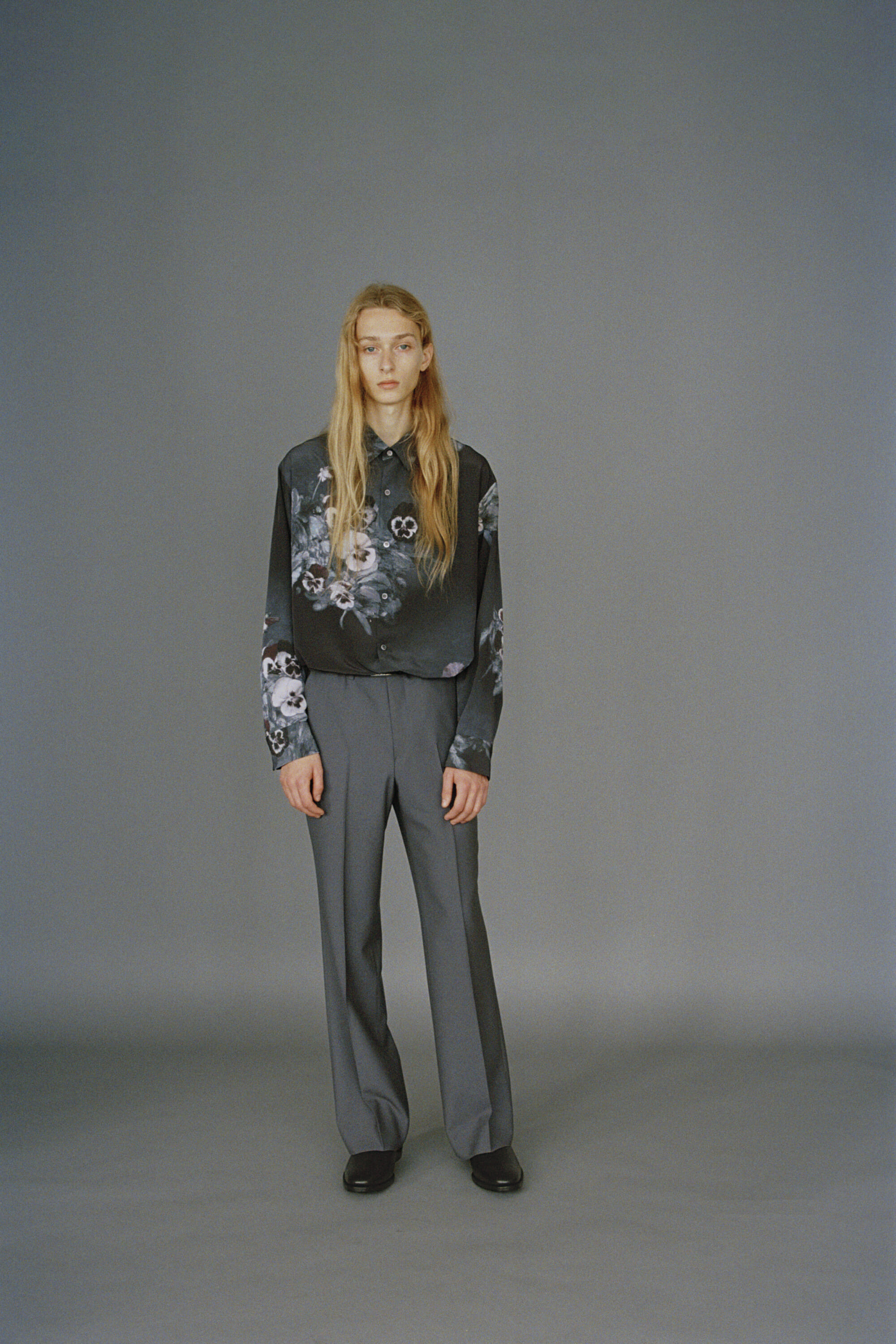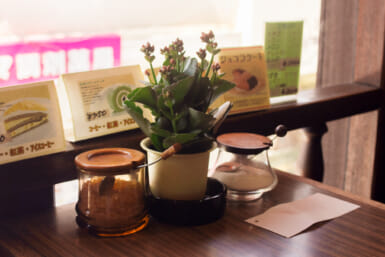Creating from the void, the space and cracks between is a concept or way of living that Samuel Beckett explored in his libretto created for Morton Feldman’s 1977 anti-opera titled Neither. Feldman and Beckett, known for their absurdist, minimal use of language and tone and engaged in the comprehension and presentation of the futility of meaning and life itself, crashed (alongside their contemporaries) between a generation that had seen and participated in the horrors of war and the hopelessness of the modern.
Beckett was probably the most prominent and recognized of the writers working within what was known as the Theater of the Absurd, a movement that also included Eugène Ionesco, Jean Genet and Edward Albee. Feldman, one of America’s most lauded modern composers, and Beckett have often been bound together in terms of philosophy or philosophies, and their work on Neither, specifically, has had a direct influence on leading Japanese fashion designer Yuichi Kuroda’s spring/summer 2024 collection for his brand Lad Musician, named Play Feldman Read Beckett.
A Coincidental Designer
Kuroda’s Lad Musician, established in 1995, and its nomenclature and brand ethos came about with such coincidence and serendipity that even Beckett would have approved. It’s the absurdity in happenstance that occasionally changes our direction in life and, in doing this, reshapes our future.
Kuroda, a slim and quiet man sporting elegant black hair, has made a career from injecting fashion with the echoes, currents and tides of music. His office in the fashionable Tomigaya district of Tokyo is crammed full of books, records and CDs. The music of Feldman, books of Beckett, titles on Gerhard Richter and The Clash and a huge photographic portrait next to the record player and speakers of John Lydon of the Sex Pistols and Public Image Ltd sit among thousands of other artistic paraphernalia.
When we speak at his office, Kuroda tells me about the bizarre beginnings of his career in fashion. “I didn’t get through university, so I went to a training school for fashion (Esmod) instead,” he says. “It’s actually a funny story. I was walking around Harajuku, and a TV crew was there, and it was a weird show that asked people to show them their pants. So, I escaped the cameras and ran through the backstreets and ended up in front of Esmod.
“I went inside, and someone gave me a pamphlet, and I had no idea what it was, but I thought, if I have to go somewhere, I may as well go there. That’s how I got to study fashion.”
The name “Lad Musician” was also born out of sheer coincidence: “Some time after I graduated from Esmod, I happened to be invited by an acquaintance and friend of the director to do a fashion show,” Kuroda explains. “I had to decide on a brand for the show, so I initially named it Musician. We went ahead with the preparations for the show, and after producing the invitations, we found out that the name ‘Musician’ had already been registered as a trademark.
“While I was at a loss for what to do, I happened to find an article about lad culture in the UK in The Face magazine, which was on my desk. That’s how I put ‘Lad’ at the beginning of the brand name. I prepared some tape and typed ‘Lad’ on the already finished invitations and stuck it in front of ‘Musician.’ That’s how the name ‘Lad Musician’ was found.”
Collections From the Music Vaults
From its beginnings in 1995, Kuroda has infused his collections for Lad Musician with the aesthetic chords and subtle notes of music, drawing inspiration from bands and musicians like Spacemen 3, Slint, Joy Division and, more recently, Morton Feldman for spring/summer 2024. A look through these disparate collections and you can catch a glimpse of the man behind them and his quietly intellectual approach to fashion.
Often these collections are inspired by whatever Kuroda is reading and listening to at a particular time. For the latest collection, Play Feldman Read Beckett, he was listening to the work of the American maestro while reading Beckett’s Worstward Ho, from where one of the Irish Nobel laureate’s most popular and recognizable quotes comes: “Ever tried. Ever failed. No matter. Try again. Fail again. Fail better.”
For Play Feldman Read Beckett, Kuroda states in the brand’s press release that the “absurdity of Beckett’s work is expressed through details placed in unusual positions and layered designs.” The collection includes black floral pansy patterns with a nihilistic Feldman image on items including shirts, blousons, track jackets, trousers and T-shirts. There is also a hand-drawn graphic of a guitarist, inspired by the cover painting of Worstward Ho by the sculptor Alberto Giacometti and a graphic T-shirt featuring the phrase “I destroy, I destroy, I destroy” that, according to the brand, “embodies the philosophy of Ludwig Wittgenstein, a philosopher who influenced Feldman, known for his ideas on the limits of language.”
Kuroda says of this collection, “Again, it was really just by coincidence that I was listening to Feldman and reading Beckett and the fact that they link so much together. So, that’s where I got the inspiration for this collection. Feldman actually composed some of his work about Beckett, and I hadn’t realized that until then. And when I knew this about them, it all came together in my mind.”
Absurd, Anarchic and Aesthetic
The term “Theater of the Absurd” comes from renowned theater critic and academic Martin Esslin, who wrote that the Theater of the Absurd “does not provoke tears of despair but the laughter of liberation.” It’s in this laughter, this manic elation found in nihility and futility, that Kuroda finds his aesthetic and creative stride. It also combines an inherent nihility with touches of beauty and brevity that define the absurd and, ultimately, the philosophies of Beckett and Feldman.
If we look backward to previous Lad Musician collections, such as spring/summer 2017, which focused on nihilism and anarchism, and midsummer 2023’s collection based on Joy Division and their tragic — and now viewed as iconic — frontman, Ian Curtis, it’s clear that Kuroda finds a destructive force as a consistent and returning source of innovation and creation.
Failing Better
Lad Musician turns 30 in the spring/summer 2025 season, and Kuroda plans a return to the runway as a method of presenting his collections to the world. For nearly a decade now, Kuroda has opted for a lookbook or visual representation to display his work. As an act of celebration, he is planning to present a triumphant runway collection to thank his customers, who have loyally stayed with the brand throughout the previous few decades.
Before we finish the interview, however, I ask Kuroda if he thinks Japanese fashion can still be considered a force internationally. “Many Japanese people don’t have money now, so they have to be very particular about what they buy,” says Kuroda. “I think better products will be produced because people are stricter and more particular about purchases. For people that love fashion but don’t have much money, they will focus very carefully with what they buy. If Japanese brands can create sizes that fit overseas customers, then Japanese fashion can still be a force in global fashion.”
I sometimes wonder whether or not Kuroda reflects Beckett’s paradoxical refrain of failing better. Perhaps designers are never finished with a collection, never replete, always striving for the next, always moving forward, failing better every time and always changing the record and turning the next page.
For information on Lad Musician, check ladmusician.com and follow the brand on Instagram at @ladmusician.
Related Posts:
- Comme des Garçons 50 Year Anniversary
- Fumito Ganryu’s Genderless Visions of Fashion
- Mao Yoshino: Tokyo’s Most Colorful Art and Fashion Girl
Updated On February 16, 2024

